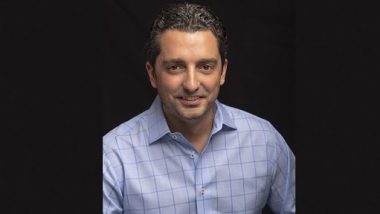After working for an insurance carrier and traditional employee benefits brokerage firm, Donovan Pyle identified a fundamental misalignment market: legacy stakeholders in the employee benefits space have little incentive to reduce their client's costs because they make more money when their client's costs go up. Pyle founded Health Compass Consulting in 2018 - a next-generation employee benefits firm that helps growth champions and performance leaders build high-performance health plans that measurably improve the financial and physical health of their business, employees, and community by turning OPEX into EBITDA.
Today, Pyle holds the highest designation awarded by the National Association of Health Underwriters, is one of twenty consultants in the U.S. certified by the Validation Institute.
Here is an exclusive Interview with Donovan Pyle.
What motivated you to start Health Compass Consulting? How did the idea come about?
I joined the employee benefits industry to help improve the physical and financial health of businesses and communities, but throughout my tenure at an insurance Carrier and a traditional brokerage firm, I discovered that the financial incentives between our clients and us were completely misaligned. The more an employer’s healthcare costs go up per employee in the conventional model, the more money the brokerage firm makes.
I couldn’t go on in good conscience that way and had no choice but to create a new business model that enables us to align ourselves with our clients and their goals. This alignment is a significant reason why our clients are able to deliver more value to their employees while saving 500 to 5,000 dollars per employee, per year, in the process.
What was your mission at the beginning of starting your business?
Our mission at Health Compass is to help employers reduce healthcare costs by improving the quality of care their employees receive.
I was shocked when I first discovered that low-quality healthcare usually costs much more than high-quality care, and it’s a primary reason why 25% of everything we spend on healthcare today is considered waste.
Low-quality care is detrimental to organizations and communities' financial and physical health than the average American currently spends 30% of their lifetime earnings on healthcare/health insurance. Medical error is the 3rd leading cause of death in the United States.
Once we put employers in a position where they can see the price and quality of the healthcare their employees are consuming, it becomes much easier for them to deliver exceptional value to employees while reducing costs throughout the process.
What do you attribute your success to? Is there a trait you have or a person who helped you along the way?
I’ve rarely taken the safe or predictable paths in life for better and worse, and I’ve probably failed more times than some people have started. I believe we all have a civic and moral responsibility to identify and tackle complex societal problems with whatever gifts God gave us.
When times get tough, what would you say motivates you to keep going? To not hit the snooze button and to keep fighting for your goals.
As benefits consultants and brokers, we have a profound opportunity to improve employees' financial and physical health, their families, and communities. It is a serious responsibility and one that we do not take lightly. We owe it to clients, our community, and our country to keep going when things get tough - which they often do.
What is unique about your business? Is there a competitive advantage that you have over the rest?
Our business model gives us the financial freedom to solve our client’s problems without investor or vendor influence. The solutions needed to solve most of our country’s healthcare problems are readily available. Our most significant advantage is that we have the freedom, expertise, and experience to scale solutions that work.
Have you ever gotten a disappointed client or customer? If so, how did you handle the situation?
Health Compass is a general contractor for benefits, and we’ve certainly made some mistakes along the way. The worst ones occurred when we placed clients with vendors who over-promised and under-delivered. It was an awful experience, but it taught us a couple of things:
1) We had to improve our vetting process for vendors and
2) We need to be very intentional concerning how we manage expectations with our clients.
Things will go wrong on occasion, but luckily, we have redundancy in our supply chain and can swap out vendors as needed.
Is there a type of marketing that has worked amazingly for Health Compass Consulting? If so, how did you stumble upon it?
There is so much sales pressure in society that people want to learn about solutions on their own or be referred to a solution by someone they trust. An opportunity lies in the fact that there is a lot of confusion about how the benefits and insurance industries work, so we’ve invested heavily in creating content that educates the market about these topics so they can make better business decisions. We do webinars, newsletters, and videos, and the market responds quickly when our message isn’t resonating.
Is there any resource or resources that helped you on your journey to becoming a business owner?
I’m an information hound, so I’m constantly absorbing and synthesizing information that will help Health Compass serve the marketplace better. While Friedrich Hayek, Milton Friedman, and my parents laid a philosophical and moral foundation, I’m routinely inspired by the business acumen of my family, friends, and the local community.
What are the three best pieces of advice that you would give to anyone starting a business? What do they need to know from the very beginning?
- Make sure you identify a real problem people face and have a viable way to solve it. Without that, you’re probably wasting time.
- Create a business plan to solve that problem, and make sure you know your numbers inside and out.
- Protect your cash flow but be ready to invest heavily in your company as opportunities arise.














 Quickly
Quickly



















